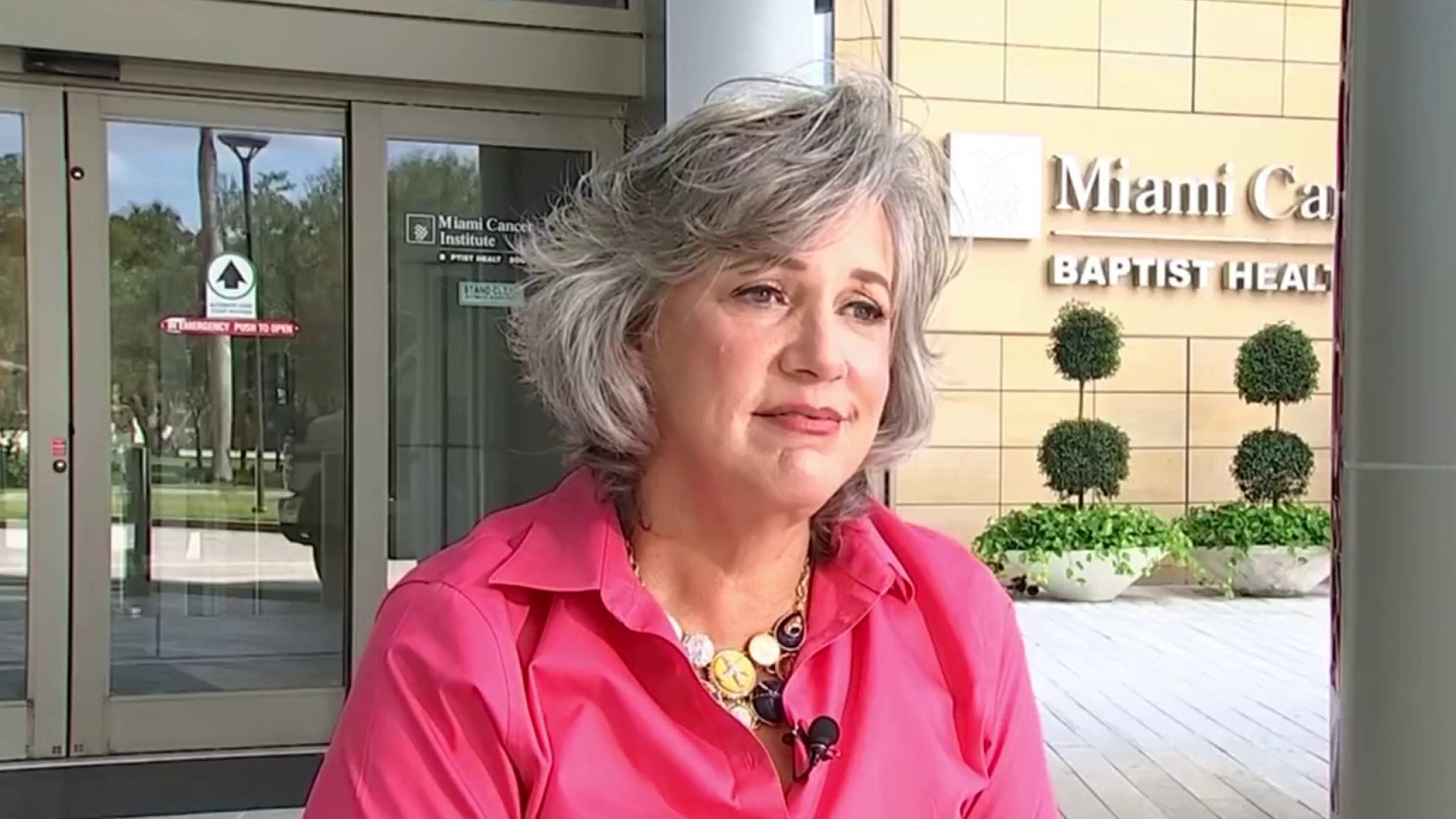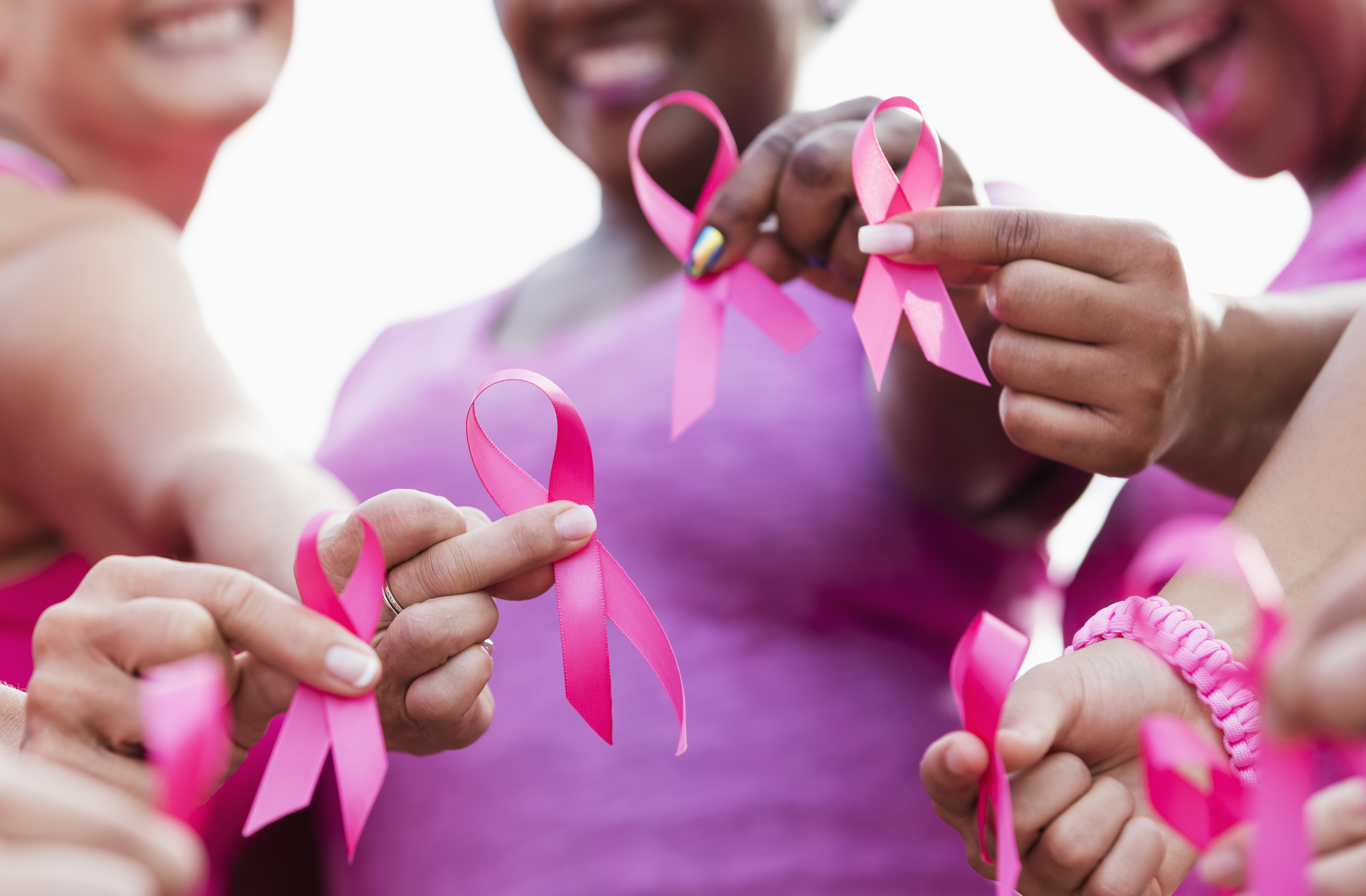With just a few days left in Breast Cancer Awareness Month, doctors are highlighting a concerning trend they say is the result of missed or delayed mammograms due to the pandemic.
It’s a battle Carmen Diaz never thought she’d have to fight.
“It was like having a golfball underneath my arm,” Diaz said. “I’ve been such a healthy person all my life.”
In January, the then-66-year-old was diagnosed with stage 3 breast cancer.
Get South Florida local news, weather forecasts and entertainment stories to your inbox. Sign up for NBC South Florida newsletters.
“The hardest part for me was telling my mom,” she said. “My mom was 84 years old at the time.”
When the pandemic first hit, Diaz was scared to go anywhere, especially because her husband, mother and sister, who had a different type of breast cancer, were all at high risk.
“We wouldn't see anybody, we didn't want to take a chance,” Diaz said.
Breast Cancer Awareness Month
But that also meant Diaz pushed off critical doctor’s appointments, like getting her annual mammogram.
“I just didn't go. First of all, I was afraid,” Diaz said.
In November 2020, she felt a lump.
But before she could see a doctor, her husband got COVID-19. While she didn’t get it from him, she had still been exposed and had to delay getting the diagnostic mammogram.
“In all that time, it kept growing because it was aggressive," she said.
"Because of her stage and presentation, she requires multiple forms of treatment chemoradiation,” explained Dr. Cassann Blake, a breast oncology surgeon and one of the many doctors treating Diaz.
Dr. Blake is the head of the Department of Breast Surgical Oncology at Cleveland Clinic Weston. She says screening mammograms dropped by almost 60% in U.S. women after the pandemic began, and it’s leading to a concerning trend.
Dr. Blake says she’s now seeing more advanced stages of breast cancer.
“Screening mammography is key in early diagnosis,” said Dr. Blake. “It helps us to diagnose breast cancer in its earliest stages, oftentimes stage zero. We are seeing more stage 2 breast cancers at presentation. We're seeing more women come in after they felt a lump.”
The stage is tied to the treatment and prognosis, she said.
“The more advanced stage, the more aggressive the treatment, and the more your survival has been impacted because it’s been diagnosed at a later stager,” explained Dr. Blake.
Both doctors and Diaz are optimistic about her outcome, but they’re using this opportunity to highlight the importance of regular screening mammograms.
“Get your screening every year and don’t be afraid of the treatment or the condition because having cancer is not the end of your life,” Diaz said.
Dr. Blake says mammograms were not the only cancer screenings that declined during the pandemic. She also referenced a University of Wisconsin study that estimates in ten years, there will be about 2,500 additional breast cancer deaths because of the pandemic’s disruption of screenings, diagnoses and treatments.
According to the American Cancer Society, there was another study that found an even more significant drop in breast cancer screening rates in low-income communities during the pandemic.



